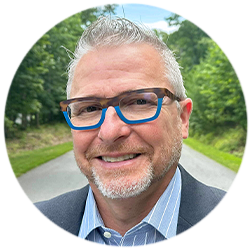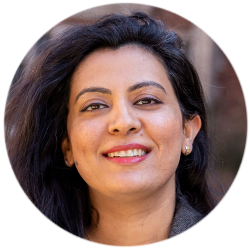Plenary Speakers
C. Edward Watson | May 8

“Pedagogical Practice in the New Era of AI”
C. Edward Watson is Vice President for Digital Innovation at the American Association of Colleges and Universities (AAC&U). Prior to joining AAC&U, Dr. Watson was the Director of the Center for Teaching and Learning at the University of Georgia (UGA) where he led university efforts associated with faculty development, TA development, learning technologies, and the Scholarship of Teaching and Learning. He continues to serve as a Fellow in the Louise McBee Institute of Higher Education at UGA and recently stepped down after more than a decade as the Executive Editor of the International Journal of Teaching and Learning in Higher Education. His most recent book is Teaching with AI: A Practical Guide to a New Era of Human Learning. Dr. Watson has been quoted in the New York Times, Chronicle of Higher Education, Campus Technology, EdSurge, Consumer Reports, UK Financial Times, and University Business Magazine and by the AP, CNN, and NPR regarding current teaching and learning issues and trends in higher education.Mehtab Khan | May 9

“Copyright, Generative AI, and Fair Use in Educational Institutions”
Mehtab Khan's scholarship intersects intellectual property, in particular copyright and trademark law, internet law, anti-discrimination, and AI Law. She is interested in how technology impacts society, and analyzing the role of law in mitigating and shaping that impact. Her recent academic scholarship includes articles on developing an accountability framework for large-scale AI training datasets, regulating automated content moderation and online speech tools, and the impact of AI on the creative industries.Her current research at the Berkman Klein Center at Harvard University looks at the mechanisms for governing the practices involved in developing and deploying AI technologies. She is particularly interested in how to ensure diversity and representation in the development process, and the ways in which the harms and impacts overlook marginalized groups. Her doctoral dissertation, completed at Berkeley Law, examines the role of internet platforms in shaping fair use. This research was partly inspired by challenges internet users face to access knowledge and the ways platforms like Google and Wikipedia navigate complex copyright rules to make knowledge more accessible.
Mehtab Khan was previously a Resident Fellow at the Information Society Project at Yale Law School. At Yale, she was also the Program Director for the Yale/Wikimedia Initiative on Intermediaries and Information. She has been a visiting researcher at Stanford HAI. She is a recipient of numerous grants to work on the use of AI in hiring. She was a Fellow at the Center for Technology, Society and Policy in 2019, and a Research Grantee at the Center for Long-Term Cybersecurity
Mehtab is a licensed attorney and she has previously worked as a lawyer in the United States, Malaysia, and Pakistan. She has done stints at the Wikimedia Foundation, Creative Commons, and the Electronic Frontier Foundation—three Bay Area institutions that have been at the forefront of many legal battles around digital rights. She holds an LLM and JSD from University of California, Berkeley School of Law.